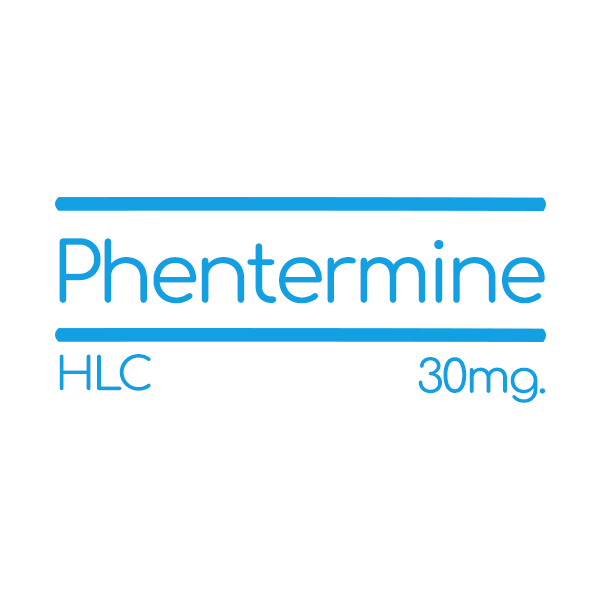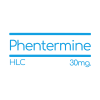PHENTERMINE 30mg. Tablets.
$90.00 – $360.00
The Product it’s In Stock and Ready to Go Out, the Price Includes the Release of the Prescription, Duty-Free, Tax and all Fees, and We Also Send All Orders From a Safe Place, To Avoid Mail Lifters, Customs Hassle, and Shipping Issues, and We Always Use Special Courier Companies like FedEx and/or U.P.S. Via Two Days Air and/or Second Day Air, With No Signature Required, and We do Send Discrete Flat Envelope With no Medical or Pharmaceutical Tags, to Protect the Right of Privacy of Our Customers; We Also Have a Confidentiality Clause, and We Don’t Share Our Customers Information With Third Persons
This Product Belongs to the Opioid Narcotic Pain Medication Group, Classified by the F.D.A. On Schedule # II of Controlled Substances, for Exclusive use of Clinics & Hospitals; And We Offer These Top Quality Products From the Original Laboratories Approved by the F.D.A.
Ps. Buying Products From Other Unknown Countries and From All the Scam OnLine Pharmacies With No Health Regulations like Pakistan, India, China, Asian, or Central and South America, You Have the Risk to Get An Strong Infection or Get Poisoned by Not Regulated Suspicious Products and Fake Drugs, Mixed with Other Deadly Substances or Adulterants They Offer, Made in Clandestine Laboratories in the Worst Health Conditions and Environment Where the Products Can Be Contaminated, Because They are Fake Product, Weak Generics, Street Unknown Drugs, HomeMade or Counterfeit Because it’s Impossible For this Countries To Get the Original Presentations
Description
Phentermine Hydrochloride 30mg.
DESCRIPTION
Oral sympathomimetic amine used as anorexiant
Used as an adjunct for short-term (a few weeks) treatment of exogenous obesity in patients 17 years and older
Due to lack of safety studies most other anorectic agents should not be co-administered with phentermine; use with fenfluramine (withdrawn from US market) was associated with pulmonary hypertension and cardiac valvulopathy
COMMON BRAND NAMES
Adipex-P, Atti-Plex P, Atti-Plex P Spansule, Fastin, Lomaira, Pro-Fast, Tara-8
HOW SUPPLIED
Adipex-P/Atti-Plex P Spansule/Fastin/Phentermine Hydrochloride/Pro-Fast Oral Cap: 15mg, 18.75mg, 30mg, 37.5mg
Adipex-P/Atti-Plex P/Lomaira/Phentermine Hydrochloride/Pro-Fast/Tara-8 Oral Tab: 8mg, 37.5mg
DOSAGE & INDICATIONS
15 to 37.5 mg PO once per day as a single dose every morning before breakfast or approximately 2 hours after breakfast. Some tablets with a score may be divided, with 18.75 mg (half-tablet) given in morning and the other half-tablet later in the day (but not in late evening), if needed. For some patients 18.75 mg PO once daily is sufficient. Geriatric patients may require lower dosage. Phentermine is indicated for obese patients with a BMI 30 kg/m2 or more or in patients with a BMI 27 kg/m2 or more in the presence of other risk factors (e.g., controlled hypertension, diabetes mellitus, or dyslipidemia). The equation for calculating BMI is weight in kilograms divided by height in m2.
8 mg PO 3 times per day, 30 minutes before meals. Because geriatric patients have an increased risk of hepatic, renal, or cardiac dysfunction, dosing selection in geriatrics should be cautious, usually starting at the low end of the dosing range. One-half of the usual dose (i.e., 4 mg PO 3 times/day) may be used for patients not requiring the full dose. The regimen should be individualized to obtain an adequate response with the lowest effective dose. Late evening dosing should be avoided due to the potential for insomnia. Phentermine is indicated for obese patients with a BMI 30 kg/m2 or more or in patients with a BMI 27 kg/m2 or more in the presence of other risk factors (e.g., controlled hypertension, diabetes mellitus, or dyslipidemia). The equation for calculating BMI is weight in kilograms divided by height in m2.
MAXIMUM DOSAGE
37.5 mg/day PO.
37.5 mg/day PO. May require reduced dosage compared to younger adults.
> 16 years: 37.5 mg/day PO.
<= 16 years: Safety and efficacy have not been established.
Safety and efficacy have not been established.
DOSING CONSIDERATIONS
The effects of hepatic impairment on phentermine and its metabolites are unknown.
Use with caution. Specific guidelines for dosage adjustments in renal impairment are not available. Based on the reported excretion of phentermine in urine, exposure increases can be expected in patients with renal impairment.
ADMINISTRATION
For storage information, see the specific product information within the How supplied section.
Phentermine hydrochloride oral capsules or tablets (Adipex-P or equivalent 15 mg to 37.5 mg products):
The usual dose is administered daily before breakfast or 1 to 2 hours after breakfast.
Tablets may contain a score to allow daily dose to be divided in half and administered before meals or 1 to 2 hours after meals.
Avoid late evening administration because of the possibility of insomnia.
Phentermine hydrochloride oral tablets (Lomaira 8 mg tablet or an equivalent 8 mg product):
The usual dose is administered three times per day, 30 minutes before meals.
The tablets are scored for administration of one-half of the usual dosage for patients not requiring the full dose.
Avoid late evening administration because of the possibility of insomnia.
STORAGE
Generic:
– Protect from moisture
– Store at controlled room temperature (between 68 and 77 degrees F)
Adipex-P:
– Store at controlled room temperature (between 68 and 77 degrees F)
Atti-Plex P :
– Store at controlled room temperature (between 68 and 77 degrees F)
Atti-Plex P Spansule :
– Store at controlled room temperature (between 68 and 77 degrees F)
Fastin:
– Protect from moisture
– Store at controlled room temperature (between 68 and 77 degrees F)
Ionamin:
– Store at 77 degrees F; excursions permitted to 59-86 degrees F
Lomaira :
– Store at controlled room temperature (between 68 and 77 degrees F)
Pro-Fast:
– Discard product if it contains particulate matter, is cloudy, or discolored
– Protect from light
– Store at controlled room temperature (between 68 and 77 degrees F)
– Store in original container
Suprenza:
– Store at controlled room temperature (between 68 and 77 degrees F)
CONTRAINDICATIONS / PRECAUTIONS
Phentermine is contraindicated for use in any patient with a prior history of sympathomimetic amine hypersensitivity or idiosyncratic reaction to sympathomimetic amines.
Phentermine is contraindicated in patients with a history of cardiac disease, including coronary artery disease, stroke, cardiac arrhythmias, heart failure, or uncontrolled hypertension. Patients with controlled hypertension should receive phentermine with caution and with close monitoring of blood pressure. Valvular heart disease has been reported in women receiving the combination of fenfluramine and phentermine; the safety and efficacy of combination therapy with phentermine and any other drug products for weight loss, including selective serotonin reuptake inhibitors (e.g., fluoxetine, sertraline, fluvoxamine, paroxetine), have not been established. Therefore, coadministration of these drug products for weight loss is not recommended. Further, primary pulmonary hypertension (PPH) has been reported to occur in patients receiving a combination of phentermine with fenfluramine or dexfenfluramine. The possibility of an association between the use of phentermine alone and PPH or valvular heart disease cannot be ruled out. The initial symptom of PPH is usually dyspnea. Other initial symptoms include: angina pectoris, syncope, or lower extremity edema. Patients should be advised to report immediately any deterioration in exercise tolerance. Treatment should be discontinued in patients who develop new, unexplained symptoms of dyspnea, angina pectoris, syncope, or lower extremity edema.
Because phentermine is a sympathomimetic agent, it is contraindicated in patients with hyperthyroidism. It should also be used with caution in patients with thyroid disease.
Phentermine is contraindicated for use during or within 14 days following MAOI therapy because of the risk of hypertensive crisis.
Phentermine is contraindicated in patients with agitated states. Psychiatric conditions that may be associated with agitated states include but are not limited to anxiety disorders, schizophrenia, psychosis, and mania. Use with caution in such patients and monitor closely for changes in moods and behaviors or for insomnia. Symptoms of chronic intoxication include insomnia, irritability, change in personality, and psychotic symptoms that may be clinically indistinguishable from other psychotic disorders, like schizophrenia.
The use of phentermine may cause dizziness, mask signs of fatigue or the need for rest, or impair the ability of a patient to participate in activities that require mental alertness. Advise patients to use caution when driving or operating machinery, or performing other tasks that require mental alertness until they are aware of how therapy will affect their mental and/or motor performance. In general, ethanol ingestion may aggravate these effects or cause an adverse drug reaction. Advise patients to avoid alcohol while taking phentermine.
Use phentermine cautiously in patients with diabetes mellitus. Insulin or other antidiabetic medication requirements may be altered in these patients when using phentermine during weight loss and due to altered dietary regimens. Patients should monitor their blood glucose regularly and follow the recommendations of their health care provider.
Appetite suppressant therapy is not recommend for use in those patients with a history of anorexia nervosa or other eating disorders. Use of phentermine is contraindicated in patients with a known history of drug or substance abuse. Phentermine is chemically and pharmacologically related to the amphetamines which have been extensively abused. The possibility of abuse of phentermine should be kept in mind when evaluating the desirability of including a drug as part of a weight reduction program. The least amount reasonable should be prescribed or dispensed at one time in order to limit the potential for overuse or drug diversion.
Abrupt discontinuation of phentermine after prolonged high doses may result in severe mental depression or extreme fatigue; sleep EEG changes have also been noted. Gradual withdrawal of therapy is recommended. If immediate discontinuation is medically necessary, careful monitoring and symptom management is warranted.
Phentermine is contraindicated in patients with closed-angle glaucoma. Sympathetic stimulation that occurs with phentermine can block aqueous outflow and raise intraocular pressure. Patients should be advised to report any new visual disturbance since an ophthalmic evaluation may be needed.
The debilitated or geriatric patient may be more susceptible to the CNS and sympathomimetic side effects of phentermine; use with caution in geriatric patients. Patients with renal impairment, including the geriatric patient with renal dysfunction, may also be more susceptible to side effects. Exposure increases can be expected in patients with renal impairment or renal failure. Use caution when administering phentermine to any patient with renal impairment.
Phentermine products are contraindicated for use during human pregnancy, as are many anorexiants used for weight loss. Safe use of phentermine during pregnancy has not been established; there is no known indication for use of phentermine during pregnancy. Phentermine should not be taken by women who may become pregnant unless, in the opinion of the physician, the potential benefits outweigh the possible hazards.
Phentermine is contraindicated during breast-feeding. It is not known whether phentermine and its metabolites are excreted in breast milk; however, because of the potential for serious adverse effects in the nursing infants, breast-feeding while taking phentermine is not recommended..
Safety and effectiveness of phentermine in children have not been established. Phentermine is not recommended for children or adolescents 16 years of age and under. There is no established use of phentermine in infants.
The use of inhalational anesthetics during surgery may sensitize the myocardium to the effects of sympathomimetic drugs. Because of this, and its effects on blood pressure, in general, phentermine should be discontinued several days prior to surgery.
Additional information
| Tablets | 30 tablets, 90 tablets +30 Free Product, 120 tablets +60 Free Product |
|---|
Only logged in customers who have purchased this product may leave a review.



Reviews
There are no reviews yet.